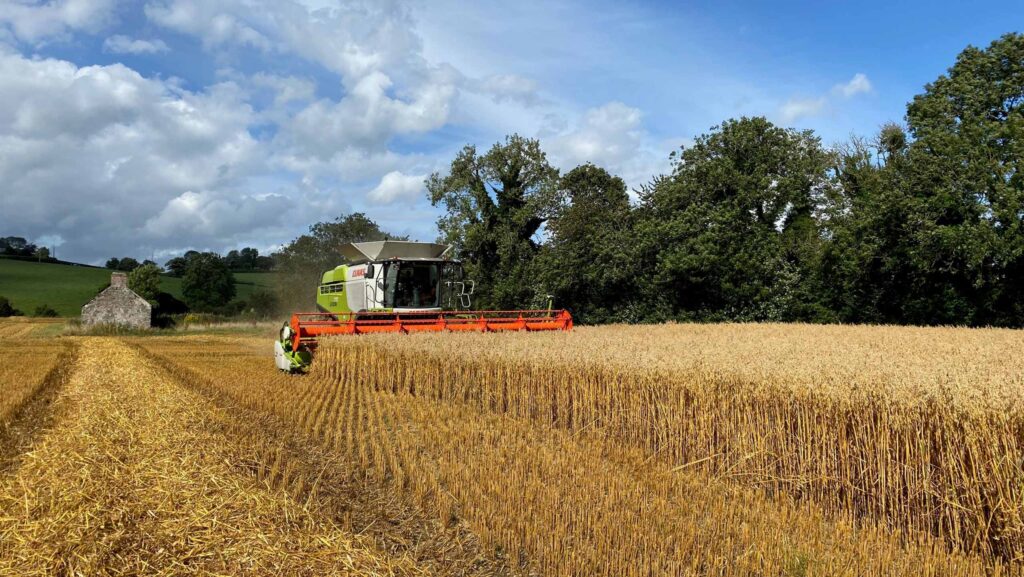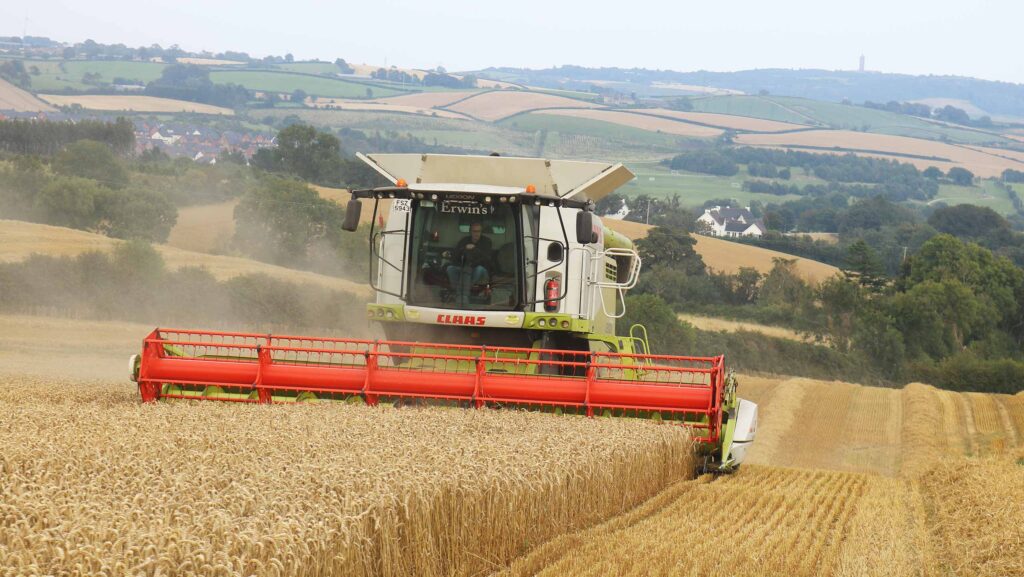Harvest 24: Soggy harvest drags on in the North and Cornwall
 Combine in Northern Ireland (Submitted by Steve McAllister)
Combine in Northern Ireland (Submitted by Steve McAllister) Harvest is shaping up to be long and drawn out in the North, with wet weather once again blighting the season while further south, good oat yields in Cornwall and OSR in East Anglia offer some brighter spots.
Cornwall
The consequences of a bad harvest have caused real challenges this year, says Mike Freke, grain and commodities trader at Mi-Grain, Truro.
“I have been trading grain for 40 years and, for the first time ever, I have not been able to fulfil my contracts on time. It’s been awful, not helped by not having any more than one dry day at a time before the weather changes.”
See also: SFI 2024 changes: What they mean for arable farmers
Winter barley harvest is complete in the area, with Cassia yields at 7.4t/ha compared to a usual average of 8.6t/ha. Specific weights are also lower at 64kg/hl.
The Graham winter wheat has been of average quality, at 73kg/hl and 17% moisture. Yields, however, are down at 8.1t/ha compared to a more normal 9.8t/ha.
The recent completion of Mascani oats has presented some good results, with yields averaging 7.4t/ha. “It’s the only thing that has made a profit as the contract prices are high,” Mike says.
Spring barley and spring wheat are ready to go, but with the forecast showing no signs of a dry spell, he is doubtful cutting will be complete any time soon.
Norfolk
Further north, harvest is complete for Dewing Grain suppliers, with some crops yielding well and others less so.
Andrew Dewing is delighted with the quality of the spring barley. “Laureate, Planet and Diablo were all perfect and very low in nitrogen at 1.3%.”
The oilseed rape yielded better than expected given the presence of cabbage stem flea beetle and was, he adds, a straightforward harvest. “We were all fearing the worst, but the crop has turned out OK. We averaged 4t/ha, with an oil content of 42% and a good moisture level.”
But the poor weather in April, May and June and the subsequent lack of sunshine have led to disappointing wheat yields this year.
“We averaged 8t/ha in this area, almost 2t/ha down, which isn’t going to pay the bills,” he says. “The quality from Dawsum, Extase and Champion was good, with an average specific weight of 77-78kg/hl.
“It really has been a mixed year, and many farmers aren’t going to profit from cereals, which I think is going to impact on morale going into the autumn.”

Cutting wheat in County Down (Submitted by Peter Niblock)
Inverness
Up in Scotland, malting barley harvest is about 37% complete among Highland Grain suppliers.
“It’s going well so far, but it is going to be a long and drawn-out harvest for us up here,” says general manager, Calum Barker. “Yields are averaging 7.4t/ha – we just need some consistent weather as it’s been quite wet, but the forecast is picking up, so fingers crossed.”
Laureate and Sassy quality has been good, with very low nitrogen and low screenings. “We have three screening levels here – 2mm, 2.2mm and 2.5mm,” he explains. “If you combine them, we are averaging 3.8%, and I am happy with that.”
Denbighshire
Across into Wales, it has been a gloomy harvest for contractor Glynn Jones at Plas-yr-Esgob, St Asaph. The Dawsum and Extase winter wheat is finished and has been of average quality, with yields averaging 7.4t/ha compared to his normal average of 9.8t/ha upwards.
The oilseed rape was particularly disappointing, with about half the fields failing to grow after being saturated by the wet weather. Of the crop that survived, the average yield was 1.2t/ha.
“The farmers I contract for are in a similar situation, and a few are saying they will not grow it next year.”
Glynn has only just started the spring barley. “It’s uneven and patchy, and I am not quite sure why.” So far, yields are averaging 6.8t/ha with 40ha still to go, which he is hopeful will be done this weekend (7 September).
“It has been a strange season with disastrous outcomes,” he says.
“Unfortunately, we took a real hit with the oilseed rape. We put it on slightly heavier land which we then rolled, but that contributed to compaction caused by the rain – in hindsight, we shouldn’t have rolled it.”

